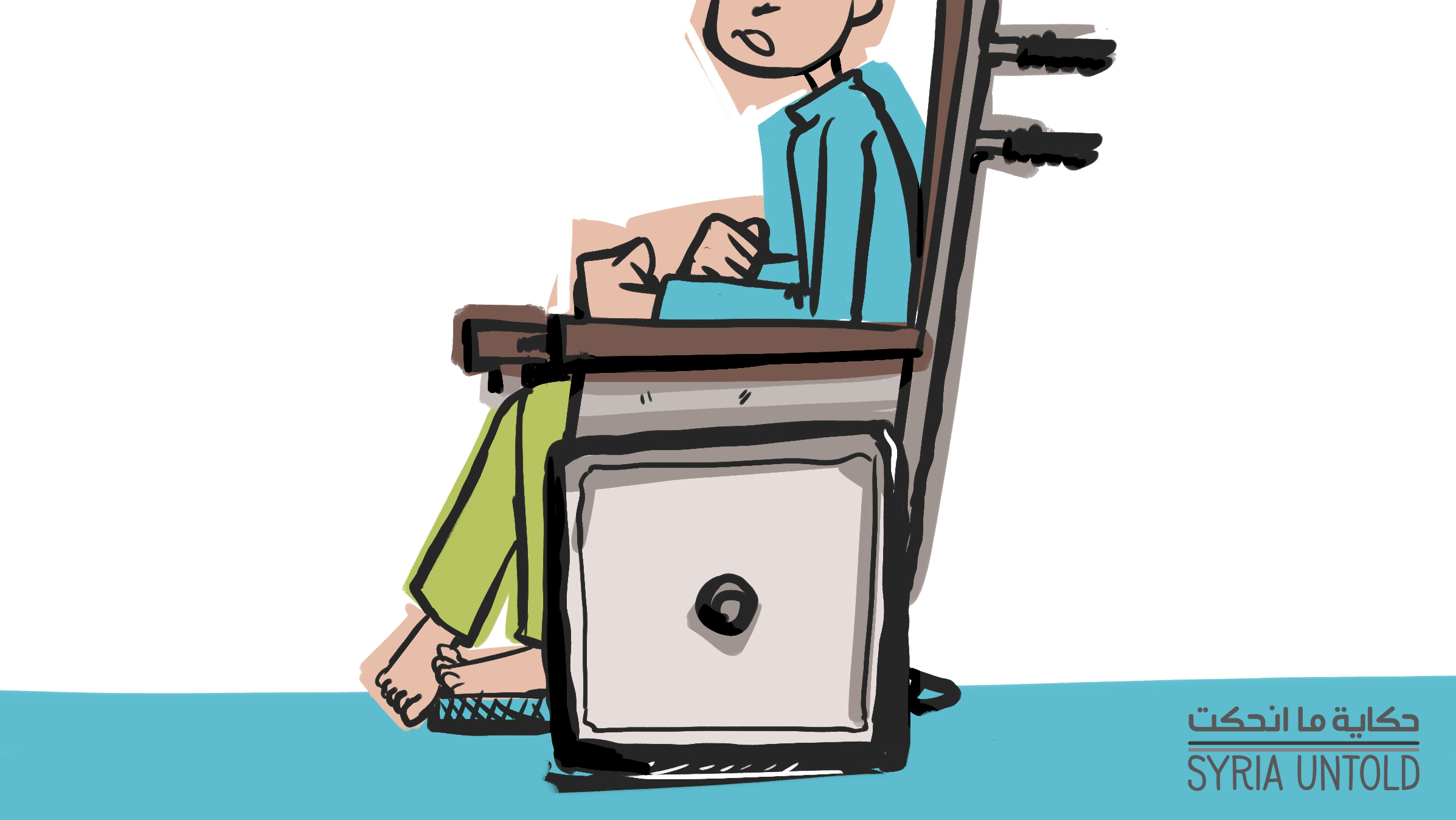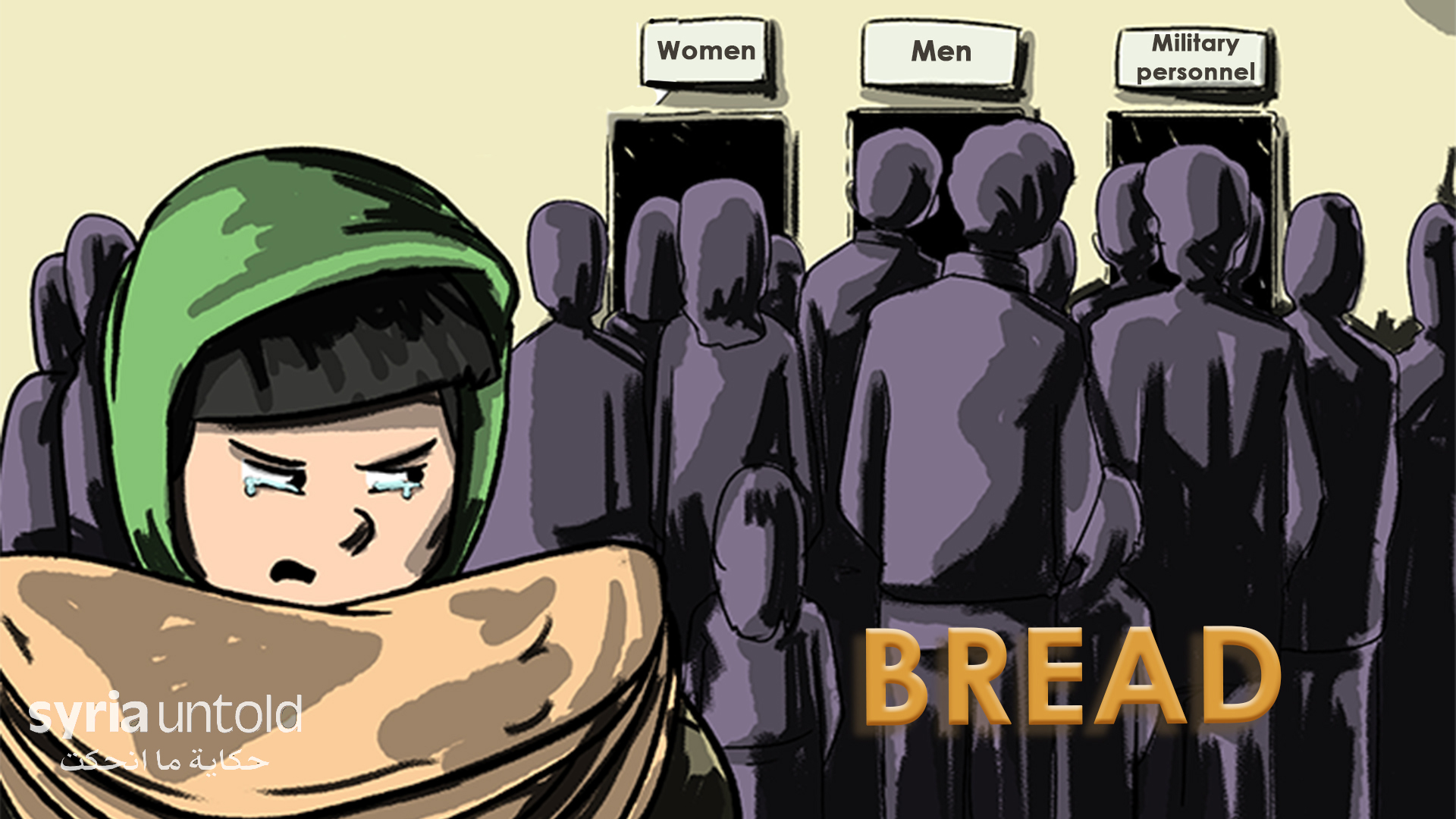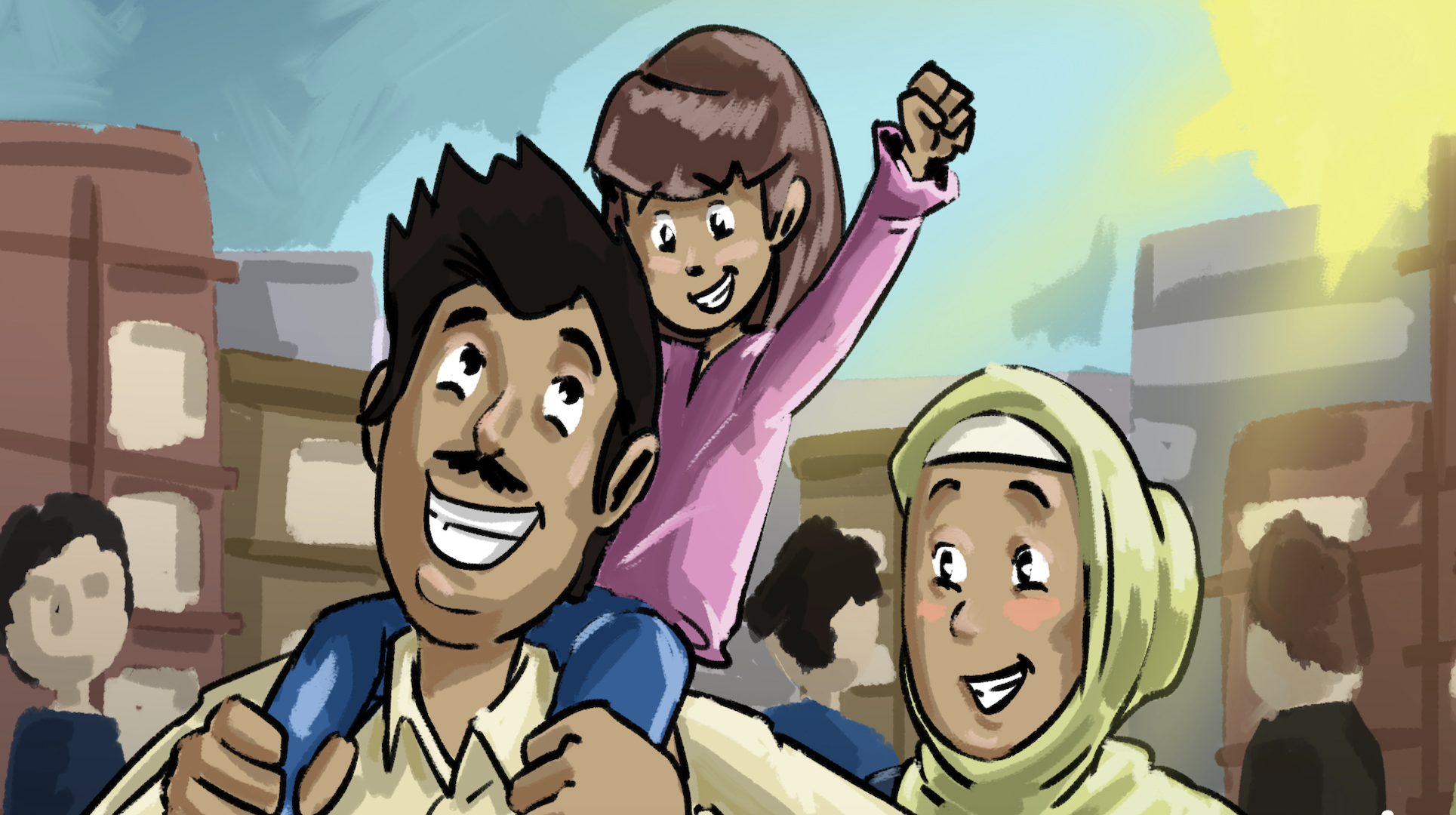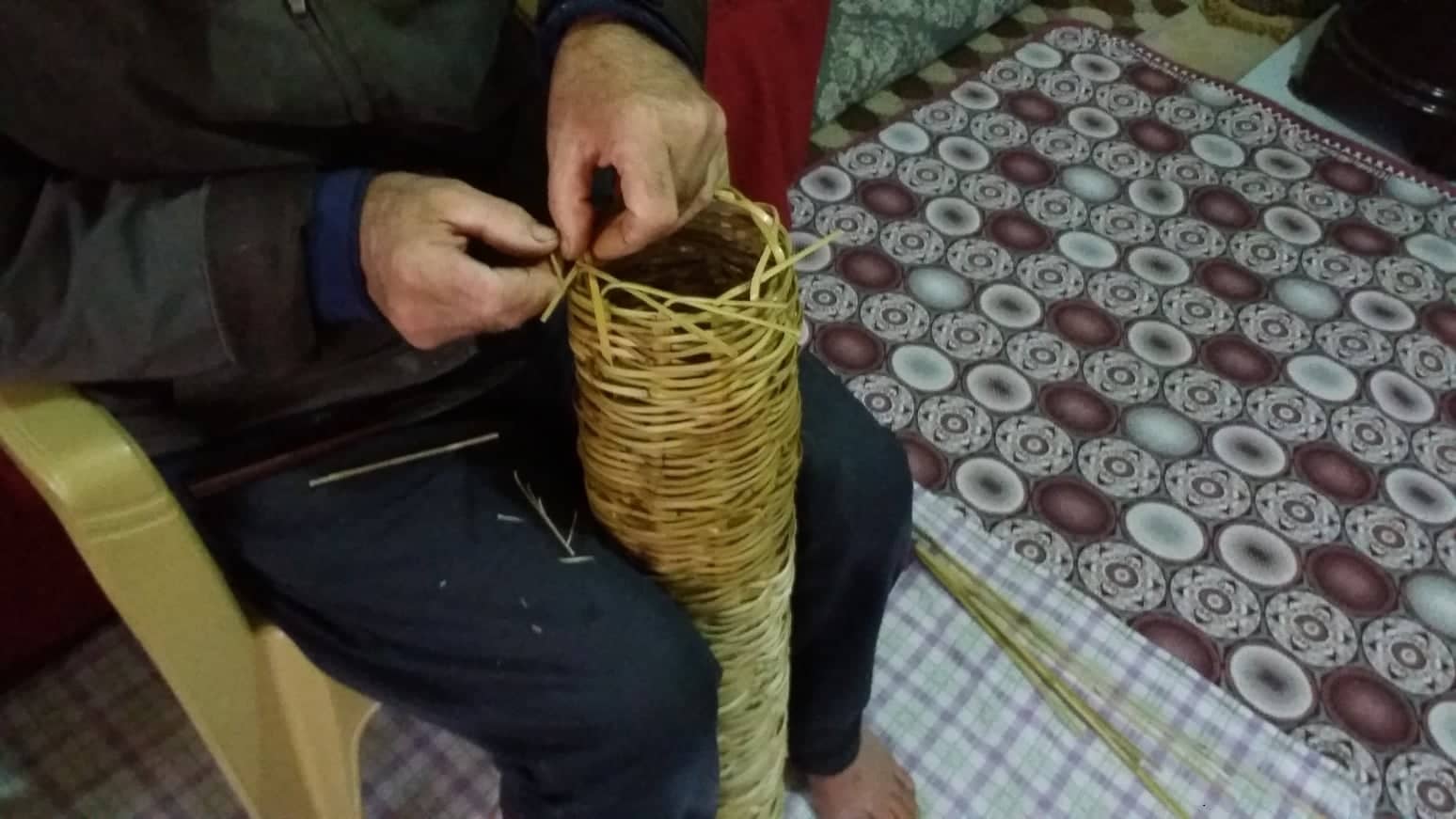DAMASCUS: “Perhaps I had great faith in God, and maybe what happened was just a test for my patience and strength because I held on to life. Each time I felt that deep desperation which constantly tortured me, something inside pulled me out and made me feel I did not deserve all that pain and deserved to be happy against all odds,” Umm Alaa,* 50, tells SyriaUntold as she stirs yogurt over the fire, speaking in her rented home in Dummar al-Balad, just north of Damascus.
Umm Alaa's kitchen is more like a workshop, with eight women working their way through a series of food and dessert orders for several rich families in Damascus: perhaps for special occasions like an engagement, birthday or a family lunch.
Several of these women have mastered the art of cooking in their houses. They rely on their relatives, connections and good reputation, along with their high-quality food, cleanliness and the timely delivery of their orders. What’s more, the home kitchen workshop that Umm Alaa manages also provides jobs for displaced women from the Damascus countryside. They lost their husbands to death or disappearance, and so became the sole breadwinners for their families. All of these women live in rented housing in various neighborhoods of Damascus.
Umm Alaa’s displacement
Umm Alaa’s suffering started a few years ago, after she was displaced with her two young sons from Daraya in 2012, leaving her husband behind to fight alongside who the armed opposition. They last spoke in 2013.
Her son, Alaa, was arrested at a pro-government security checkpoint in 2013. Around the same time, her other son, Ali, was forcibly conscripted into the Syrian army. He died in Aleppo a year later.
Umm Alaa then received her son Alaa's identity card, who she believes was tortured to death at one of the security branches belonging to Military Security in 2015. Umm Alaa had nothing left to live for. She admitted to Syria Untold that she thought about committing suicide several times, but something was holding her back.
In 2013, Umm Alaa began cooking at her place and selling her dishes, a small-scale business meant to pay her rent and support herself and her son drafted into the army, who was still alive at the time. She continued working alone until 2015, when the landlord increased her rent, ignoring Umm Alaa’s deplorable state after losing her two sons.
Amid all that misery, her neighbor, a first warrant officer in the Political Security branch who is from Jayrud outside Damascus, was silently falling in love with her.
Abu Modar, also in his 50s, was divorced and lived alone in Dummar al-Balad. He happened to live opposite Umm Alaa. He waited for her every morning when she left her house to buy food for cooking. He watched her calmly, and it took him a while before he offered to help her carry the groceries back home.
Umm Alaa was plump, and despite everything she had been through, her face was barely wrinkled. She had a sweet, shy smile, and her greetings always lifted his mood. Abu Modar was single and had nobody to keep him company.
Still consumed with loss and pain, Umm Alaa did not notice his interest in her. In fact, she had mixed feelings about him. Her gratitude was intertwined with caution and fear—he was a security officer, after all—although he did seem nice, gallant even. Still, she offered him some of her dishes occasionally.
Umm Alaa and Abu Modar’s relationship became stronger after her rent went up. She was at her lowest ebb when Abu Modar intervened, threatening the landlord and convincing him to somehow come to a more affordable settlement. The landlord added a symbolic fee, and Umm Alaa stayed on as his tenant.
Umm Alaa invited her neighbor over for lunch, challenging all her previous convictions about having a strange man in her home. She defied her neighbors whose concealed condemnation was visible in their eyes. After all, by law she was still married. She was a bereaved mother, not supposed to expose herself to hearsay.
A blessing in disguise
Umm Alaa laughs as she instructs one of the women rolling vine leaves.
“Don’t make them this thick!” she orders. "People don’t like them like this.”
She returns to the story of her romance with Abu Modar.
“Abu Modar and I didn’t care. We were happy and comfortable. He’s a good man who preferred solitude. We would sit and talk for hours, without noticing time passing.”
"One day, he proposed, and I said yes. I honestly did not marry my husband out of love. May God facilitate his path, if he is alive, and have mercy on his soul, if he is dead. But, I am alive, and I deserve to be happy with what is left of my life.”
Syria's personal status laws allow separation if the husband is away from home for more than a year, without the wife knowing anything about him. As such, Abu Modar and Umm Alaa had the option to get married, which they did in 2016. They now live together in Umm Alaa’s house. Abu Modar moved in with her and changed the rent contract to be in his name.
The past never dies
Umm Alaa is at peace with her past and looks forward to a secure future with her new husband.
“I sometimes remember my children and cry, but a person has to go on and fulfil their life. What can I do other than cope, forget and live? May their souls rest in peace, and may justice take its course. But, I am also living for Abu Modar and for those women working for their families. I hope they learn from my experience and think more about themselves,” she tells SyriaUntold.
In fact, Umm Alaa’s experience inspired several women working in her kitchen to take bold decisions—decisions unacceptable in their own social circles.
One of the women, Rihab describes her experience.
“When I met Umm Alaa, and she invited me to work with her, I was newly widowed. My husband had died in prison, and I was left with three children. My eldest son was five years’ old, and I had given birth to two [twin] daughters a few months before my husband was arrested.”
“It's now been five years since I received news of his death. Since then, I met a nice carpenter who loves my children. We thought of getting married, but the Syrian law forces me to hand over my children to someone in the family, if I were to get wed. My mother is deceased, and I only have a sister. Would my brother-in-law be kinder to my children than my husband who loves them as though they were his and I?”
“In any case, we are trying to find a loophole, even if apparent, to avoid harming my children who love and trust this man. Although my eldest son resented the idea at first, he now accepts that I marry again. As women, whether widows or wives of disappeared or detained men, we suffered a lot, and nobody has shown us mercy. We have the right to seek solutions to problems in our tough lives,” Rihab tells SyriaUntold.
Taste of freedom
Umm Fares has an equally bold opinion, albeit on a different subject.
“I filed a separation suit, and I won,” she tells Syria Untold while kneading dough on the kitchen top. “My husband had been in jail for five years, and there was no sign of him. But, I did not take this step to marry again. I am working to provide for my family. I lived in a shelter, but thanks to my job, I was able to rent a house for my kids and myself. I can taste freedom for the first time in my life. I feel independent and capable. I do not need to get married, unless I find someone who respects and appreciates me. I certainly do not want to quit working or allow anyone to pay for my needs. This experience has made me stronger and shown me what I am capable of on my own, without my husband being responsible for me.”
Anait who is in her 20s got married early, then was displaced from Eastern Ghouta with her children, after her husband died fighting the Syrian army. She seems conservative, compared to her peers.
“My father drops me off at Umm Alaa’s and picks me up when I am done," she explains to Syria Untold. “He fears for my reputation and that of my kids. I come here to work and contribute to the rent and house expenses. I live with my kids, my sister and her kids and my father and mother in Wadi Barada. My sister has no idea about her husband’s whereabouts. My father is repeatedly asked for my hand in marriage, but I do not want that for my kids. Honestly, I have had enough with marriage. It only brought me pain and misery. I just want my children to grow up, get an education and not need anything.”
Umm Alaa turns to Anait to reassure her. “You are still young, my dear. Don’t let anyone decide for you, and put yourself first. Your parents’ and children’s consent is important, but it should not be at your own expense. I know this is hard for you to understand now, but one day, you will realize that life passed you by and you did not live it the way you wanted. Do not do this to yourself.”
The women respect Umm Alaa. They hand over the food they prepared, she pays them and they head out the door at the end of the shift. Afterwards, Um Alaa arranges the food orders, sorts them into bags and writes the name of the customer on each order. She changes her clothes, puts on some lipstick on and waits for Abu Modar who should arrive soon.
“Can you believe it?” she laughs. “Love at 50!”
“May God not deprive anyone of love!”
*All sources quoted in this report asked that their real names and identities be withheld for security reasons.








